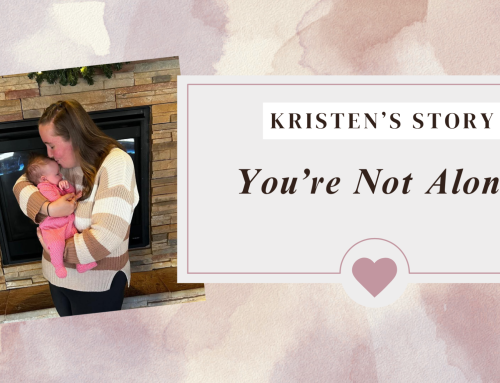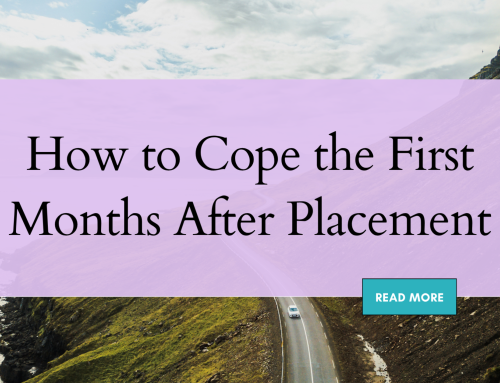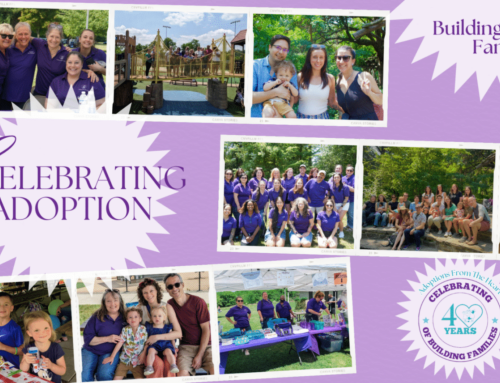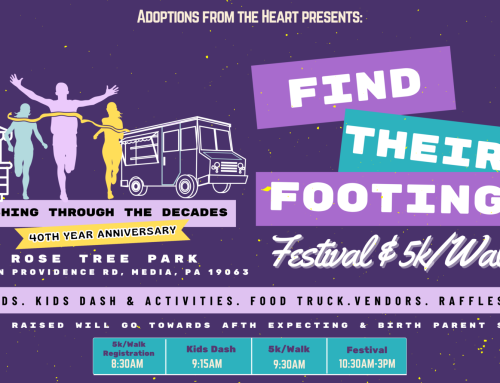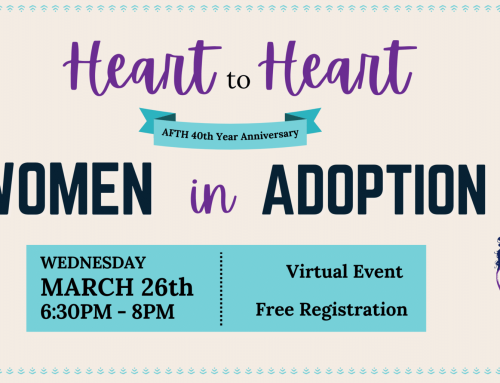
Meet Joan Smith, our Pittsburgh Adoption Social Worker! Her experience with international adoption not only helped build her own family, but also provided great insight for prospective adoptive parents going through a similar process. Learn about how her personal connection opened doors for her to be a part of her clients’ family building journey.
Tell me more about your adoption journey?
My adoption journey began in 1998. My fiancé and I had chosen not to have any biological children; we felt there were too many children in the world who needed loving homes. Adoption seemed right for us. Our attention was drawn to China after hearing about the plight that many children faced as a result of the one-child policy. We were both social workers, although we had no experience working in the adoption field at the time. Researching agencies across the country was harder back then without internet— it entailed many phone calls and gathering written material from each agency. After a year of searching for a reliable agency, we happened to call AFTH. The staff gave us a lot of information, sounding very up-front with the process and their fees. We found our agency!
After our completed home study, a year passed when we traveled to China to meet our baby girl. The process was very well organized, and we were well taken care of when in China. After 2 ½ weeks in China, our adoption was completed, and we brought home our precious little girl.
What was it like being a conspicuous family through transracial adoption?
We faced many questions from both acquaintances and strangers alike. Most people were very interested in the process and their questions were very kind and positive. But there were those whose focus was more on the cost involved and the inherent racial differences in our family. When I’m approached with a question, I answer honestly and try to educate them on all aspects of adoption and the adoption triad.
In what ways did you equip your daughter to answer all the questions she would get from strangers?
We talked to our daughter about her adoption story from the beginning. Creating a photo album with pictures from her native land, pictures of her foster mother, and other individuals who made her adoption possible. Even though she did not understand what adoption was until she was much older, she knew the word and she knew her story. I explained to my daughter that if someone asked her a question that she felt uncomfortable answering, then she needn’t answer it. If she wanted to answer a question, she could and she should always be proud of where she came from and her adoption story. I have always told her that if there was/is ever a question that she has about her adoption or her birth family, she should always feel free to ask us. She also understands that her adoption story is her story—whether or not she wishes to disclose details to anyone else is her prerogative.
What advice would you give from your experience to others who are considering adopting transracially?
I would tell them that they need to consider many factors before adopting transracially. They need to realize that just because they are open to a child of any color, the world is not a kind place and that they or their child will face prejudice at some point in their lives. It’s important to think about where they live, where they go to church, and where their child will attend school. Do these places have diversity and will their child feel out of place? If the answer is yes, they need to be willing to make some changes in their life. Find a school/church with racial diversity, pick a doctor/dentist that matches your child’s race, and have items (toys, dolls, books, movies) in the home that relate positively to your child’s racial identity. Your child should be exposed to as many positive role models of their race as possible.
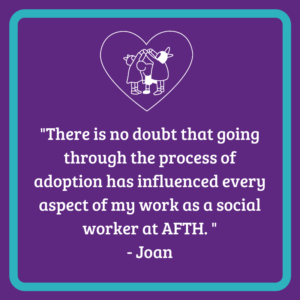 How does your personal connection to adoption influence your work at AFTH?
How does your personal connection to adoption influence your work at AFTH?
There is no doubt that going through the process of adoption has influenced every aspect of my work as a social worker at AFTH. I will always remember all of the uncertainties and worries I had while in the adoption process, and I know that each of my families is experiencing their own set of worries and concerns. I empathize with them and understand what they’re going through. On the other side of the process, I develop a strong and personal relationship with each expecting parent I work with. I imagine that they could be my daughter’s birth parent, and the grief that they feel is greater than anything imaginable. I have the utmost respect for any birth parent who makes an adoption plan, and will work to make sure that they have a plan that they are most comfortable with.
Thank you Joan for sharing your adoption connection!

